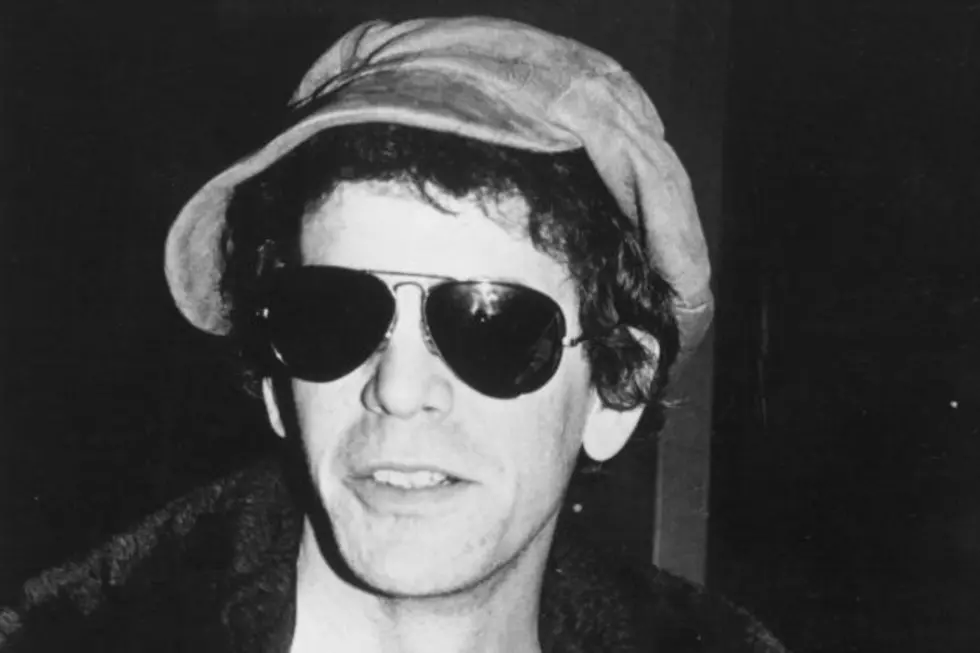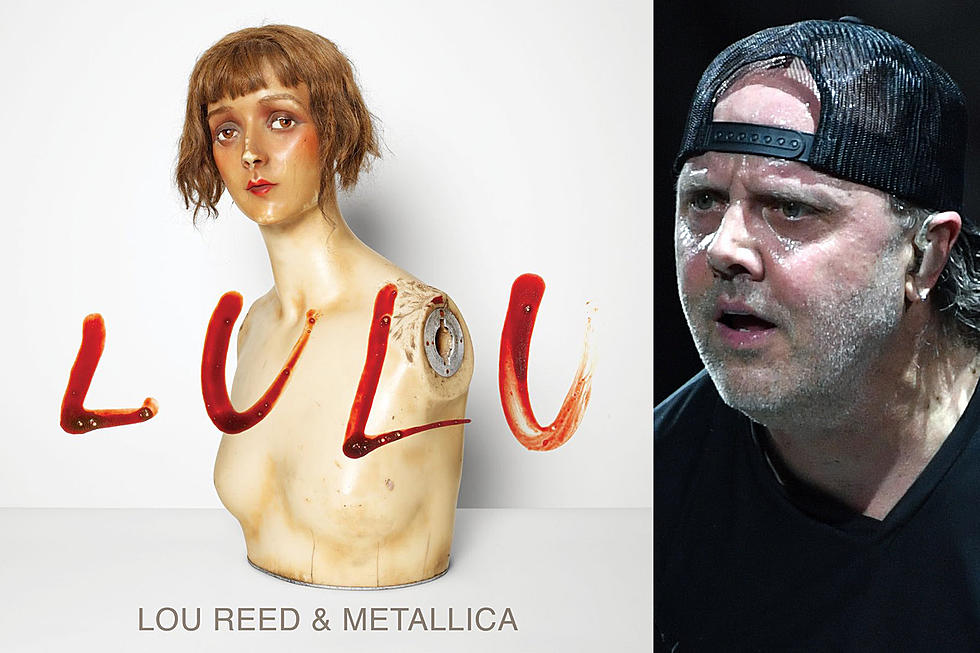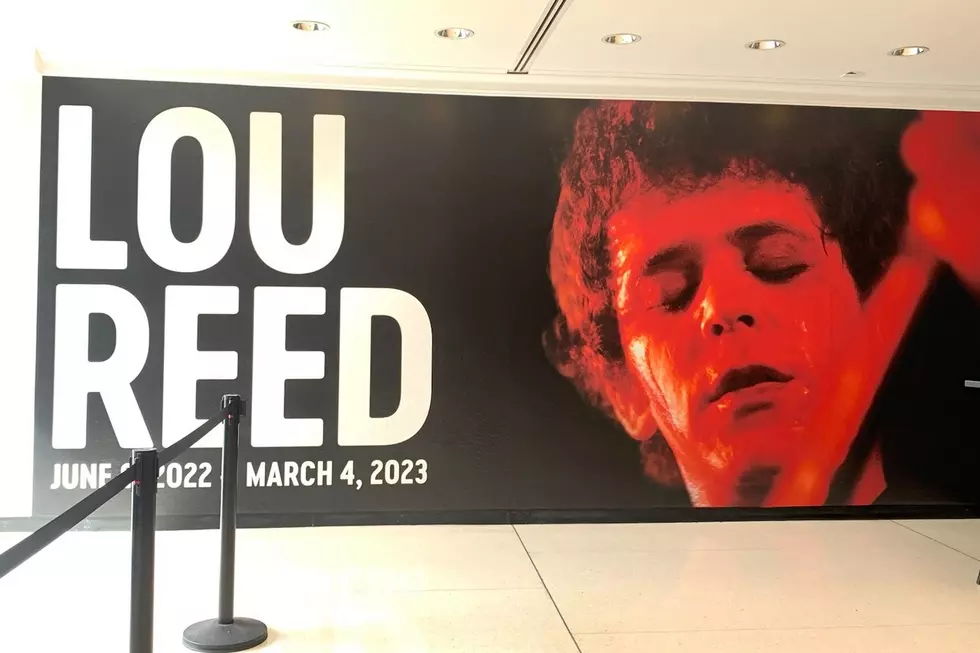
Remembering Lou Reed – A Rock ‘n’ Roll Hero
Lou Reed was a rock 'n' roll hero. You hear that a lot about artists. Sometimes it's true; most times it's hyperbole to elevate a mediocre-to-middling career to someplace it reached for but never quite grasped. Reed reached continuously throughout his 50 years of making music, and more often that not, he firmly held on to whatever it was he had in his grip. Lou Reed was more than a rock 'n' roll hero. He was a pioneer of rock 'n' roll attitude.
There's a famous quote by Brian Eno, in which the synth-rock pioneer stated that while only 30,000 people bought the debut album by Reed's band the Velvet Underground, all of them started bands. It may be exaggeration to an extent, but there's little doubt that anyone who heard 'The Velvet Underground & Nico' back in 1967 was inspired in some way to cut through the bulls--- of pop music and explore a dirtier, darker side lurking in the shadows.
The landmark record -- guided by Reed, no matter what other names are attached to it -- found comfort, solace and a sense of community in the drug addicts, transvestites and whores that populated many of the songs. German model-singer Nico may have received co-billing on the album and lent her shaky voice to three of the LP's songs, but it's Reed's seven-minute centerpiece 'Heroin' that anchors the record.
During the summer of 1967, when the Beatles were leading a parade of 'Sgt. Pepper' imitators, lifetime New Yorker Reed sang of the rush and experience of spiking a needle into your veins with the same enthusiasm that John, Paul, George and Ringo welcomed Billy Shears.
The Velvet Underground got darker on 1968's follow-up, 'White Light / White Heat,' a noise-rock milestone launched by the compact but abrasive title track and capsized on the 17-minute 'Sister Ray,' a sprawling, art-rock set piece wallowing in the filth, drugs, debauchery and decay of an underground scene. It's an inspiration to avant-garde rockers the world over. And nothing else in 1968 sounded like it.
Reed's last two albums with the Underground -- 1969's self-titled LP and 1970's 'Loaded' -- are more pastoral and folksy. They're almost a reaction to the two blistering assaults of noise that came before them. And they're no less influential ('Loaded,' recorded as Reed was halfway out the door, includes two of the band's best and best-known songs, 'Sweet Jane' and 'Rock & Roll').
In 1972, Reed released his debut solo album, mostly made up of Velvet Underground leftovers and sketches. 'Transformer,' released later the same year, was bigger and better. Produced by fan and new pal David Bowie, the album wrapped together VU decadence, glam-rock guitars and a downtown-chic panorama of assorted hookers, transgender hustlers and junkies looking for scores and comfort. It spawned Reed's only Top 40 single, 'Walk on the Wild Side.'
The follow-up album, 'Berlin,' rolled the same dark, despairing themes into a concept record buoyed by a musical backing of horns, intricate arrangements and studio pros. It made for an early example of Reed's polarizing nature. It also revealed Reed as an artist who didn't really care what critics, the public or anyone for that matter thought about him and his music. Until his death, he was a confrontational figure, sparring with interviewers and gaining a reputation that was somewhere between acerbic and a--hole.
Over the next four decades, Reed released a series of albums -- some good ('The Blue Mask,' 'New York'), some not ('The Bells,' 'The Raven') and some confoundingly difficult to comprehend, like 1975's 'Metal Machine Music,' a precursor to industrial-rock behemoths like Nine Inch Nails, and his last album, 2011's 'Lulu,' a collaboration with Metallica that pushed the boundaries of tolerance for fans of both artists.
But even at his most inaccessible and frustrating, Reed was an innovator, an original and a rock 'n' roll poet with the heart and soul of a born rebel. When he died on Oct. 27, 2013, he left a legacy and a body of work that few artists of the 20th century can touch. Like his music, he opened up new worlds for music to explore, rape and pillage. He wasn't always kind, and he wasn't always easy. But he always did it with the style and attitude of someone who just didn't give a f---. And that's what great rock 'n' roll has always been about.
More From Ultimate Classic Rock









